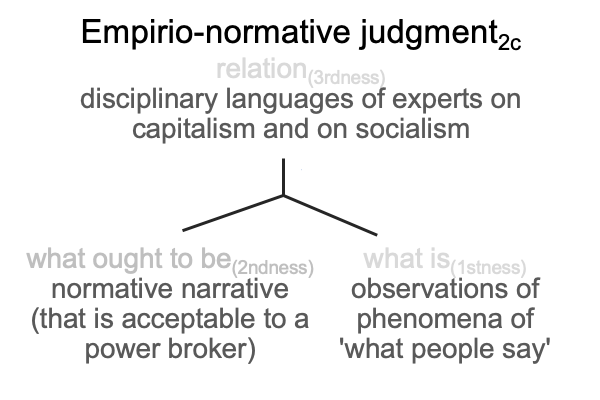0374 Chapter eight discusses the following topic.
What happens when dictators outside of the United States get involved in promotion of favored internet sites and censorship (or “depromotion”) of unfavored internet publishers?
These dictators are “stakeholders”, because internet service providers operate in more than one jurisdiction.
On one hand, big tech is international enough to operate as its own jurisdiction.
On the other hand, big tech corporations operate within the jurisdictions of various sovereign states. Experts are required to negotiate what needs to be done in order to operate in local sovereign jurisdictions (some of which are dictatorships).
0375 An old saying goes like this, “He who pays the piper, calls the tune.”
So, questions arise. Who is paying the piper? What is the tune that is being called for?
For the first question I can ask experts on capitalism. For the second question, I can ask experts on socialism.
Plus, the resulting answer will be filled with contradictions.
0376 This brings me back to the post-truth condition.
Here is the general picture.
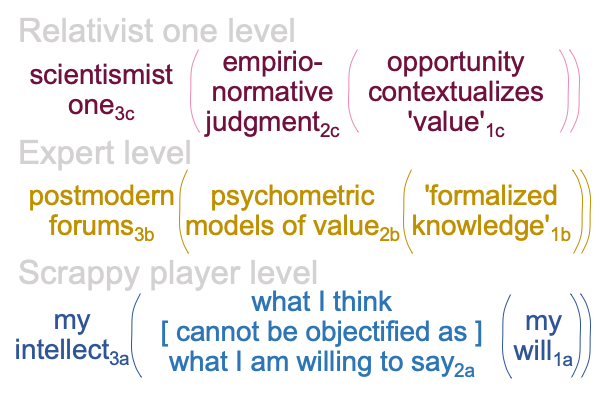
0377 Does the relativist one level compare to the institutiona (or infrasovereign) level of the societyC tier for this particular topic?
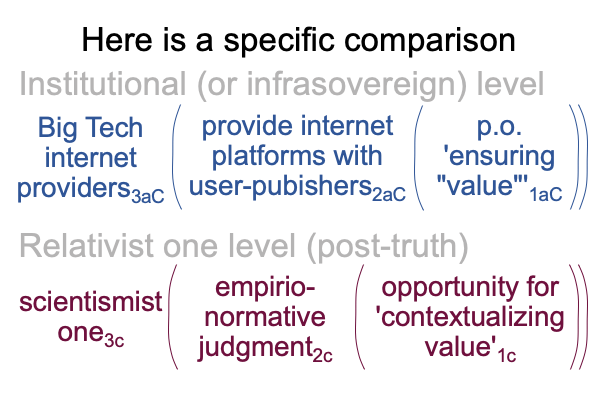
0378 If this comparison is relevant to the topic at hand, then what does that imply?
The dictator3bC seeks to virtually situate the internet service provider’s righteousness1aC with an order1bC that refuses2bCto question the policies of the um.. dictator3bC.
Yeah, there is no suprasovereign level participating in the prior sentence.
0379 Nonetheless, it seems to me that when a dictator3bC orders a big tech company3aC to alter the way that it ensures value2aC, the order3bC forces the internet provider to alter its organizational objectives2aC in such a way that the internet-provider’s empirio-normative judgment2c must adjust.
Adjustment occurs in several steps.
0380 To start, as far as the institution of an internet service3aC is concerned, the established empirio-normative judgment2c looks like this.
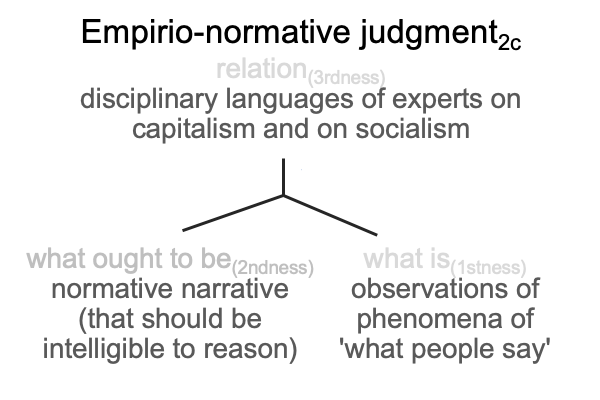
Disciplinary languages of experts on capitalism and on socialism (relation, thirdness) bring a normative narrative, that should be intelligible to reason (what ought to be, secondness), into relation with observations of phenomena of ‘what people say’, that should be recognizable to reason as universal, rather than biased or rigged (what is, firstness).
0381 What do I mean by using the term “reason” in this statement.
Reason3a,1a is the normal context of the intellect3a operating on the potential of the will1a.
That is to say, the perspective-level empirio-normative judgment2c appeals to the the content-level normal context and potential of reason3a,1a.
And, this may be framed as an interventional sign-relation, where the sign-vehicle is the empirio-normative judgment2c(SVi) and the sign-interpretant is reason3a,1a (SIi).
0382 In the next step, distortions on the perspective level of the post-truth condition pressures experts on the situation level.
The following virtual nested form tells the story. The comment starts with the situation level and concludes on the perspective level.
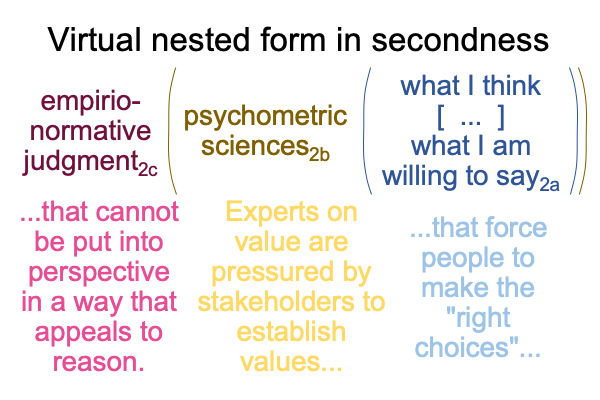
0383 In the third step, an adjusted empirio-normative judgment2c attempts to trigger reason3a,1a in a way that invites skepticism.
